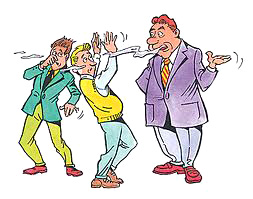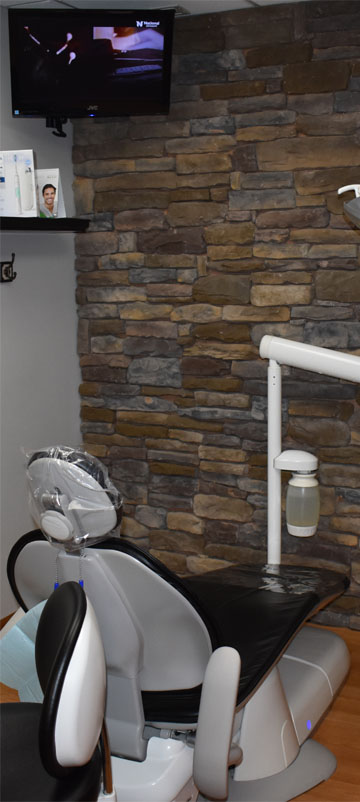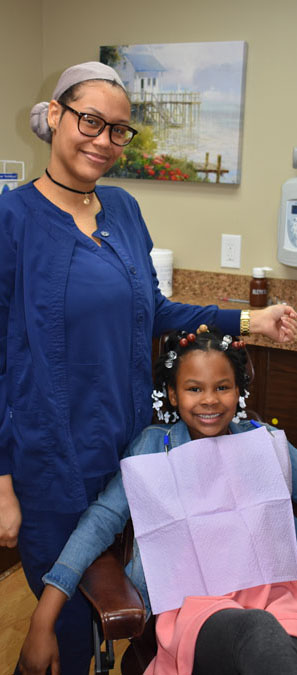 Did you ever forget to brush your teeth at night and wake up thinking that your mouth feels just terrible? It’s almost as if your teeth have sweaters on. When your mouth is not clean, it can feel, smell, and taste very unpleasant. Good oral hygiene is very important for a variety of reasons, but according to the American Dental Hygienists’ Association (ADHA), brushing and flossing are not enough for a clean mouth. ADHA research has found that simply keeping teeth clean is not enough to eliminate oral malodor. Tongue deplaquing with tongue scrapers—tools exclusively designed for use on the tongue—is as essential for fresh breath as regular brushing.
Did you ever forget to brush your teeth at night and wake up thinking that your mouth feels just terrible? It’s almost as if your teeth have sweaters on. When your mouth is not clean, it can feel, smell, and taste very unpleasant. Good oral hygiene is very important for a variety of reasons, but according to the American Dental Hygienists’ Association (ADHA), brushing and flossing are not enough for a clean mouth. ADHA research has found that simply keeping teeth clean is not enough to eliminate oral malodor. Tongue deplaquing with tongue scrapers—tools exclusively designed for use on the tongue—is as essential for fresh breath as regular brushing.
Some interesting statistics:
- About 35 percent to 45 percent of people in the world suffer from halitosis.
- Each year, Americans spend roughly $10 billion on chewing gum, toothpaste, mouthwash and other oral hygiene products in an effort to eliminate chronic bad breath.
- In over 80 percent of halitosis cases, the cause of the bad breath is NOT the result of poor oral hygiene.
If you have the flu or even just a cold, your mouth may be very unpleasant. You may find yourself rinsing your mouth and brushing your teeth more frequently than usual to make your mouth feel cleaner and to make your breath better. Just remember that the germs from your illness will linger on your old toothbrush; a new toothbrush would be a germ-free way to celebrate the end of your illness. It is important to note that halitosis related to medical problems is not limited to short-term conditions. You should talk with the dentist about whether any other medical conditions could be affecting your breath.
Your choices can have an impact on your breath, too. Smoking is a prime example of this. If you smoke, your breath will not hide this fact. Smoking has a very negative impact on your health; its impact on your breath is equally negative. Dental visits are a choice, too. If you choose not to care for your mouth properly, your breath may give this away. Finally, remember that stress makes everything worse. If you are having problems with controlling your breath, you may find that stress exacerbates these problems.
What can you do?
Many people who worry about their breath carry a toothbrush and toothpaste with them. In addition to freshening your breath, this will enable you to keep your teeth cleaner and improve your oral health. For an added bonus, you could keep dental floss with you, too.
You can also carry mints or gum with you. Although this does not improve your oral health as much as brushing and flossing, it will improve your breath in the short term. Sometimes even just taking a few sips of water, swishing it around in your mouth, and spitting it into the sink will freshen your mouth a little bit. You may dislodge food particles or other materials by doing this but it can also just help your mouth feel a little cleaner overall.
The best thing to do, though, is to share your concerns with Dr. Moore and the staff at Moore Family Dental. Do not be embarrassed about discussing this matter; they have dealt with others who have the same concerns and they want to help you.
How can you help someone else?
Think about how frustrating and embarrassing bad breath issues can be for you. They can be equally frustrating and embarrassing for others. Sometimes, people are unaware that they have bad breath and the feelings of frustration and embarrassment come when they find out that they have halitosis and did not realize it.
What should you do if someone has bad breath and does not know about it? This a difficult issue because you want to make them aware of it so they can help themselves but you do not want to offend them in the process. Sometimes, the best approach is a direct but very compassionate one. You could say something to the effect of, “I care about you and am concerned that you may not be aware of something. Your breath does not seem healthy.” If you say it this way, you are avoiding the stigma associated with the term “bad breath.”
Wait to hear the person’s response before you proceed. It may be that the person has already discussed it with the dentist and is working on treating it. If the person seems completely unaware of this issue, you could offer to help them figure out the cause of it. To a large degree, that depends on how close you are with the person and how open he or she seems to your assistance.



